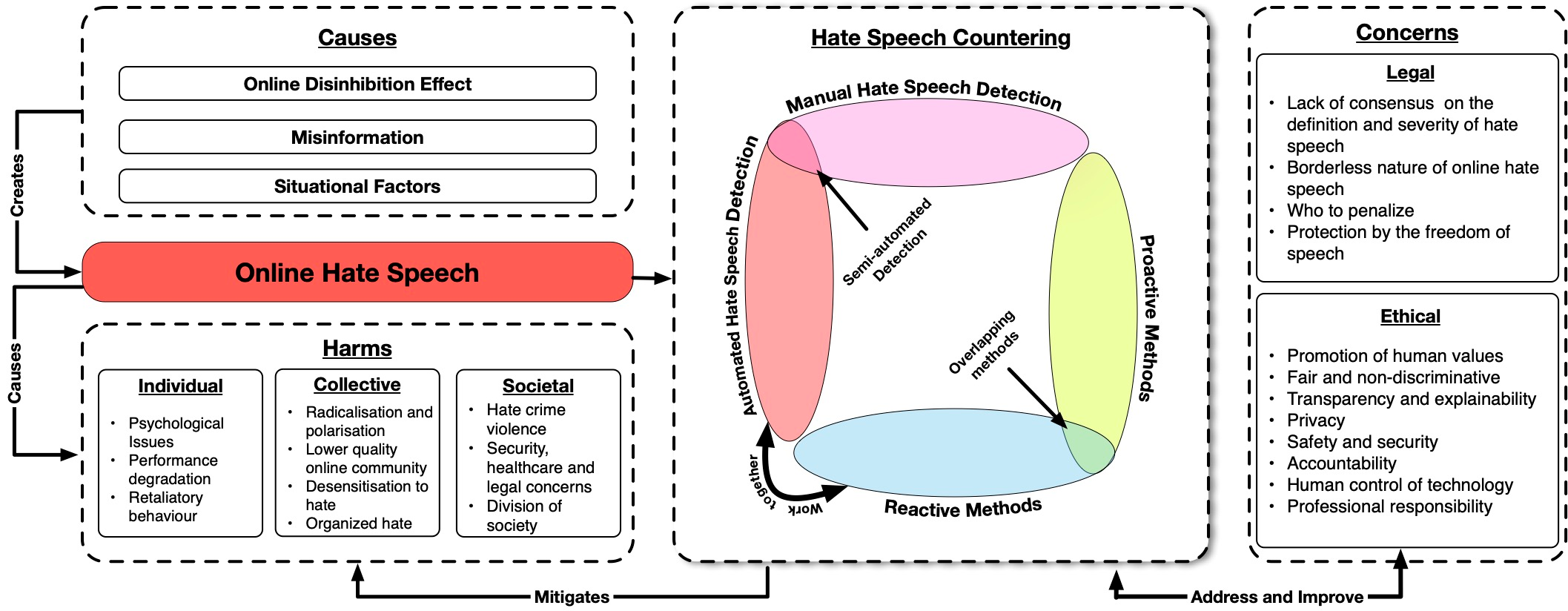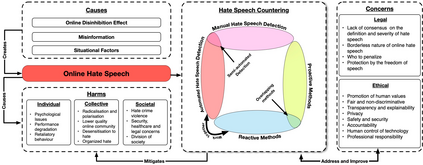Online hate speech has caught everyone's attention from the news related to the COVID-19 pandemic, US elections, and worldwide protests. Online toxicity - an umbrella term for online hateful behavior, manifests itself in forms such as online hate speech. Hate speech is a deliberate attack directed towards an individual or a group motivated by the targeted entity's identity or opinions. The rising mass communication through social media further exacerbates the harmful consequences of online hate speech. While there has been significant research on hate-speech identification using Natural Language Processing (NLP), the work on utilizing NLP for prevention and intervention of online hate speech lacks relatively. This paper presents a holistic conceptual framework on hate-speech NLP countering methods along with a thorough survey on the current progress of NLP for countering online hate speech. It classifies the countering techniques based on their time of action, and identifies potential future research areas on this topic.
翻译:网上仇恨言论引起了大家的注意。 在线毒性 — — 在线仇恨行为的总括术语,表现在网上仇恨言论等形式上。 仇恨言论是对受目标实体身份或观点驱动的个人或团体的蓄意攻击。 通过社交媒体进行的大众传播的上升进一步加剧了网上仇恨言论的有害后果。 尽管对使用自然语言处理(NLP)进行了大量的仇恨言论识别研究,但利用NLP预防和干预在线仇恨言论的工作相对缺乏。 本文介绍了关于仇恨言论NLP对抗方法的整体概念框架,同时对NLP当前打击在线仇恨言论的进展进行了彻底调查。 该文件根据行动时间对打击方法进行了分类,并确定了今后可能就此专题开展研究的领域。






